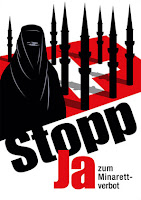The Swedish election, European Muslim communities and the politics of space

This entry was prompted by an article by Andrew Brown that appeared in Saturday's Guardian. Asking whether Sunday's Swedish election could give power to the country's far right, Brown identifies the potency and divisive character of the issue of immigration in Swedish politics. But immigration is not a new phenomenon in Sweden as it has traditionally been a haven for various refugees/asylum seekers and economic migrants. It is clear that the issue the far right Swedish Democrats have been exploiting is Muslim immigration in Sweden and the impact this has on Swedish society at local and national level. But, I think more importantly, Brown's article focuses on the Rosengård district of Malmö and identifies the conflicting perceptions about access and usage of this urban space as one of the key elements in shaping perceptions about Islam, immigration and attitudes towards foreigners in the Swedish election. This is by no means something new. Back in 2004, Fox N...





